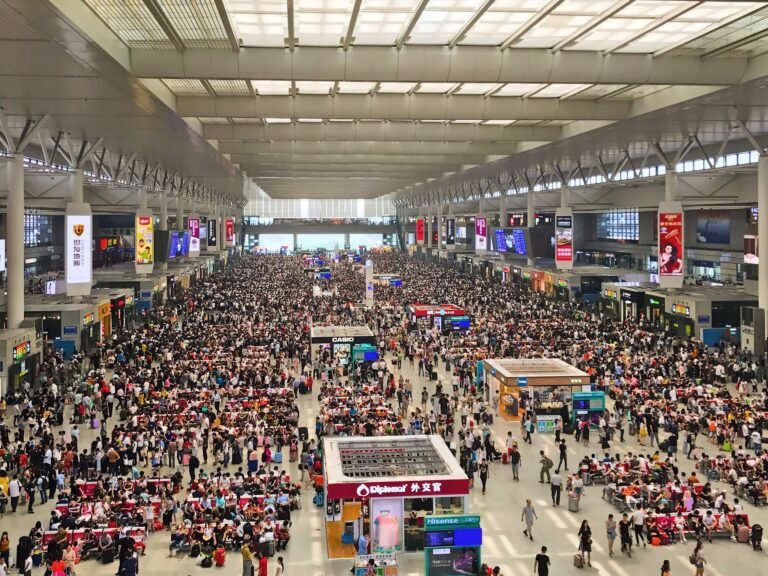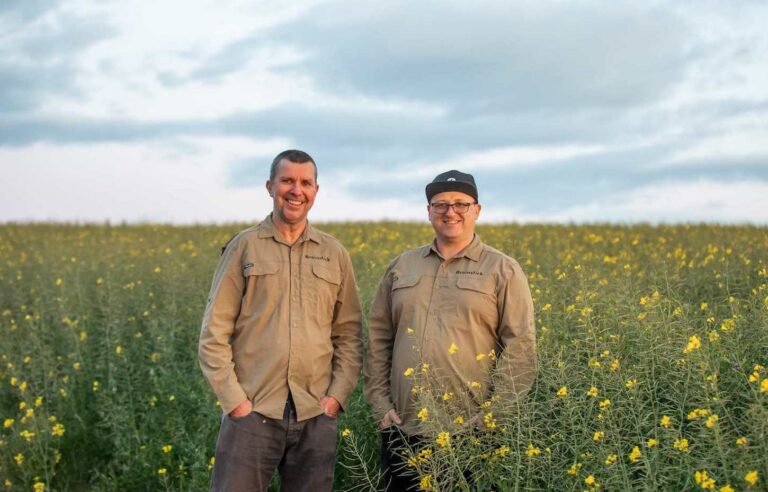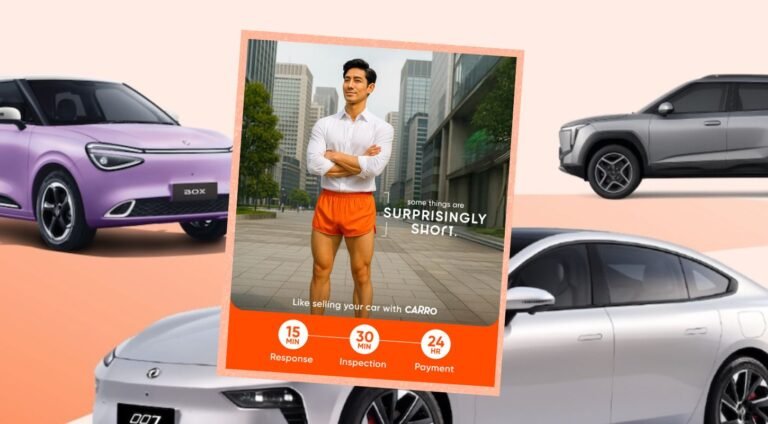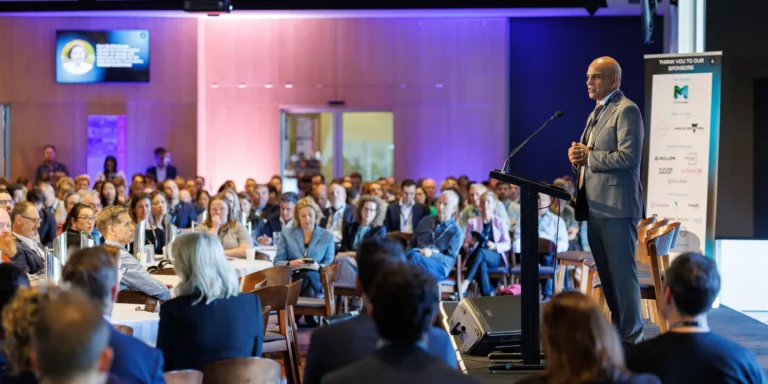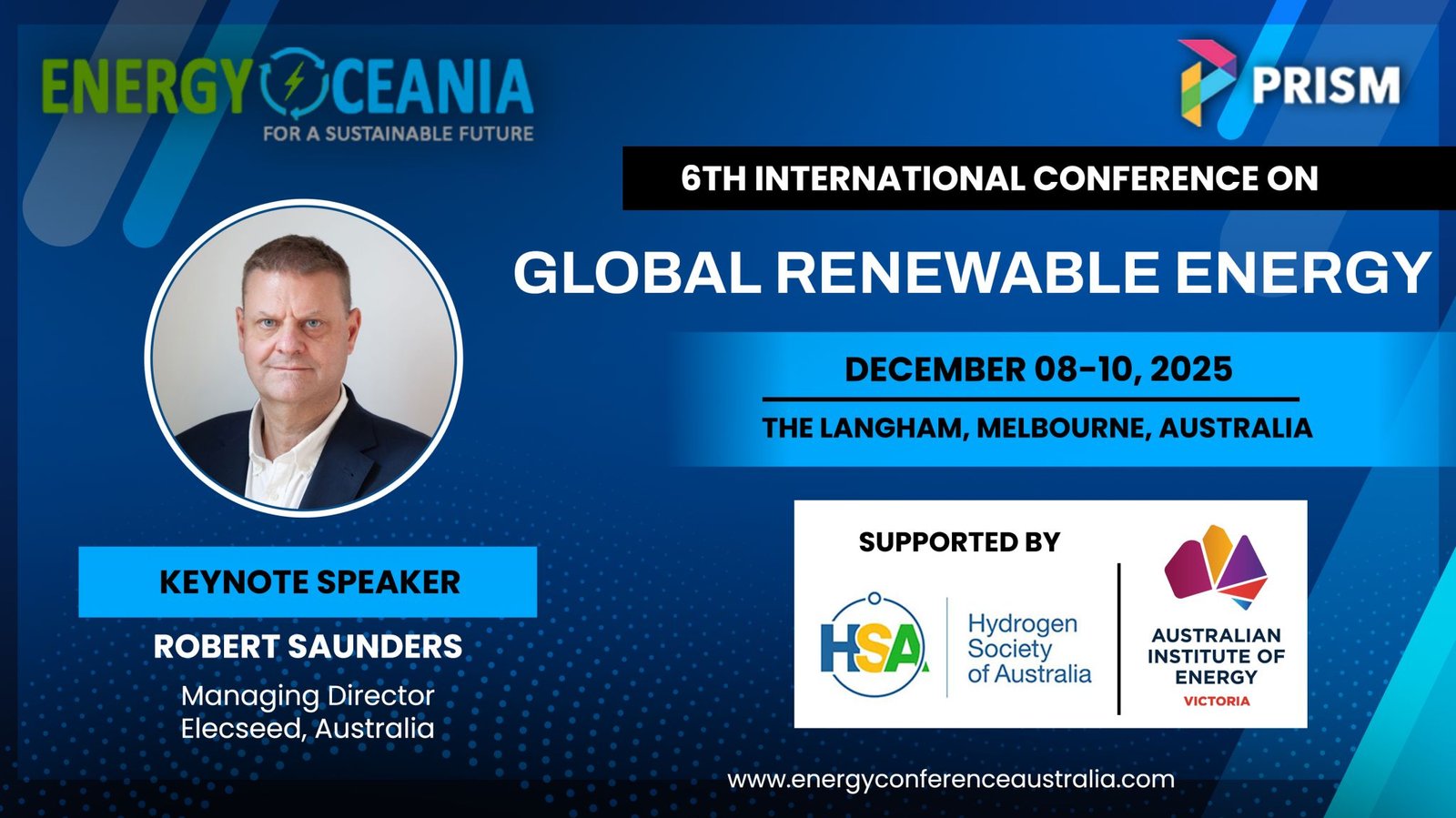Images source: Shaway Yeh
FNGN sat down with Shaway Yeh to unpack her driving passion, vision, and grassroots work in sustainable global fashion advocacy, research, consultancy, forums, and awards.
Shaway Yeh’s accolades are outstanding. Mentoring sustainable supply chain innovations, founder of China Shan Future Forum, Create-Cop 27-28 Juror, special advisor to the Copenhagen Fashion Summit, Green Carpet Fashion Awards, Kering Generation Award, as well as co-creative director of Nowness- a digital video channel founded owned by Meta Media and Dazed Group as a go-to provocative resource on culture and lifestyle with majority shareholders of joint venture China Modern Media and UK Dazed Media …. and the list goes on.
Shaway is recognised as an authority on sourcing sustainable supply chains and circular good-design – as well as the most committed influential leader and advocate in the Business of Fashion (BoF), on the prestigious BOF 500 list, and prized for her Insights and Influence on changing consumer behaviour, and pioneering sustainable fashion and design in China, Asia, and beyond.
FNGN: Thank you for making time in your very busy schedule – particularly in the Chinese Lunar New Year festive season. Fashion, in general, is constantly in the press of ‘want more – buy more – be more’. How important is sustainable fashion in the minds of today’s consumers from China, and Asia in general? Are their buying behaviours changing toward seeking out sustainable products? What is top on their list- what do they value most?
Shaway: I think the awareness is definitely increasing, due to the massive China government campaign of “double carbon target”. There is a strong promotion from all sectors and industries to promote the “Low Carbon” lifestyle (products, production, behaviors, services, etc) However, there is generally a lack of understanding, standards, and also offerings, of what are the “Low Carbon” products. Therefore, it is hard to gauge the real interest of consumers towards sustainable products( fashion). But a survey from Tmall Digital Innovative & Talents Alliance Lab, it said that there are 16 percent of potential consumers from their billions of users… which is a very positive surprise.
There is a very clear trend now that people are buying “value for money”, because of the economic downturn and a more cautious outlook for the future. That can mean two things: – buying in bulk of cheap stuff or buying high-quality stuff, but less. Of course, we hope the trends will tilt towards the latter and it’s a great opportunity for brands to really communicate (also reflect upon ) what’s the true value they are offering…. What are the components within the “quality” you are so proud of? Planet-positive and beneficial to the community, definitely should be important parts of those narratives.
FNGN: So, what drove you to take a deep dive into behind-the-scenes workrooms- of how the garments and accessories, materials, and products are sourced, designed, and made?
Shaway: Consumerism and a term used for Planned Obsolescence. Intended to be disposed of or replaced frequently. It greatly concerned me of the environmental impact and waste in fashion, contributing to global climate change. I recently read a report that of 80-100 billion new clothes made annually/ globally, 87% of the materials and fibers are incinerated or in landfills- and only 1% is recycled or repurposed.
Traditionally, fashion and product design are seasonally constructed around trends, colour palettes, and materials – and big advertising budgets- to propel immediate economic returns and beat the competition on pricing -rather than starting from the end product to analyse and innovate alternate sustainable materials into their designs.
It is a privilege to be on CreateCop27 and 28 juries. While not necessarily coming up with sustainable design solutions, it is so inspiring to meet so many talented and committed young creatives coming up with artistic expression. On the other hand, the Kering Generation Awards is more about Chinese start-ups finding solutions. Also, the Shan Future Forum, which I founded in 2018, has “Innovation” sectors, in which we invite and highlight innovators from around the world. As is often the case, scale-up funding and ongoing reliable supply chains to become mainstream are challenging issues.
I was compelled to find out more and do something about it.
I founded my company Yehyehyeh in 2017 to advance the sustainability agenda in China across R&D, marketing, and supply chain innovation. Studying Harvard’s Corporate Sustainability and Innovation Graduate Certificate in 2019, really expanded my knowledge of waste and optimising resources. I learned about corporate sustainability principles of carbon accounting, cost reduction, and operational efficiency as well as sustainability in the financial planning of risk assessment and sustainable investments. ESG (environment, social, and governance) reporting is slowly being implemented globally – I think Singapore is ahead, having mandatory ESG reporting of publicly listed companies.
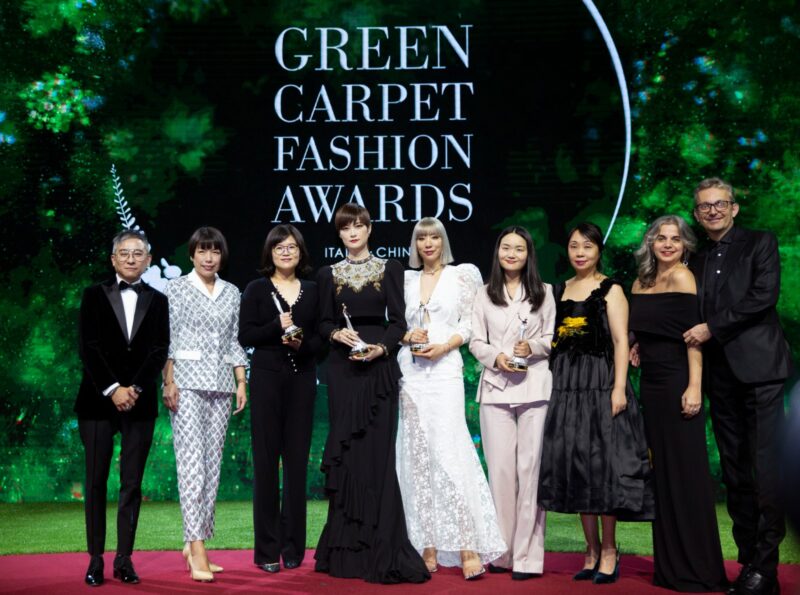
FNGN: Singapore- yes, they are so progressive in this space leading Asia and the region. Globally actually. Australia is supposed to start phasing in ESG reporting from listed companies in mid-2024.
Shaway: Well, traditionally, fashion and products produce so much waste, globally; and with Asia being the manufacturing and materials sourcing hub for many brands, the big companies have a responsibility to be part of the mechanism to research and implement solutions of sustainable supply chains – and also factory vetting standards- the United Nations Sustainable Development Goals (UN SDG’s). Also to build sustainability/ circular economy into their designs when on the drawing boards. I’ve worked with fashion groups like Woolmark Company, and Kering Group luxury brands in communications, and connecting and facilitating people-to-people and industry opportunities; and for Erdos fashion brand and Shanghai Fashion Week, in developing their corporate sustainable strategies. The Erdos Group, founded in Inner Mongolia as the leading global cashmere fashion brand, joined the Global Fashion Agenda’s new Associate Partners circle in 2019, supporting the organisation’s mission to make the fashion industry sustainable. It’s been a great journey to witness change at the grassroots.
Actually, the Kering Group – with recognisable brands such as Gucci, Saint Laurent, Bottega Veneta, Balenciaga, Alexander McQueen, and Brioni – are exceptional in craftsmanship and distinctive creativity and are sustainable leaders and global influencers of sustainable fashion ecosystems. In 2017, Kering and global innovation platform Plug and Play China launched the “Kering Generation Award”, with the third “Coming Full Circle” at Shanghai Fashion Week 2023. It’s such an honour to be part of this ‘revolution’.
“Kering Generation Awards”: “to drive industry-wide transformation by recognizing and supporting Chinese startups that bring about positive environmental and social impact and address challenges in alternative raw materials, green supply chain, retail & use, and the circular economy”
FNGN: Can you share with us about your Shan Future Forum annual event?
Shaway: Sure. One reason I came up with the idea of the Shan Future Forum founded in 2018 was to bring together designers, scientists, experimentalists, companies, and fashion brands to imagine a better sustainable future. To collaborate from different disciplines – different personalities – to bring producers and consumer solutions to meet climate challenges. It’s held in conjunction with Shanghai Fashion Week annually and includes online programs, offline workshops, and panels – with fashion group speakers from companies like Louis Vuitton, Diesel, and China online shopping portals of Alibaba’s Taobao and Tmall Group.
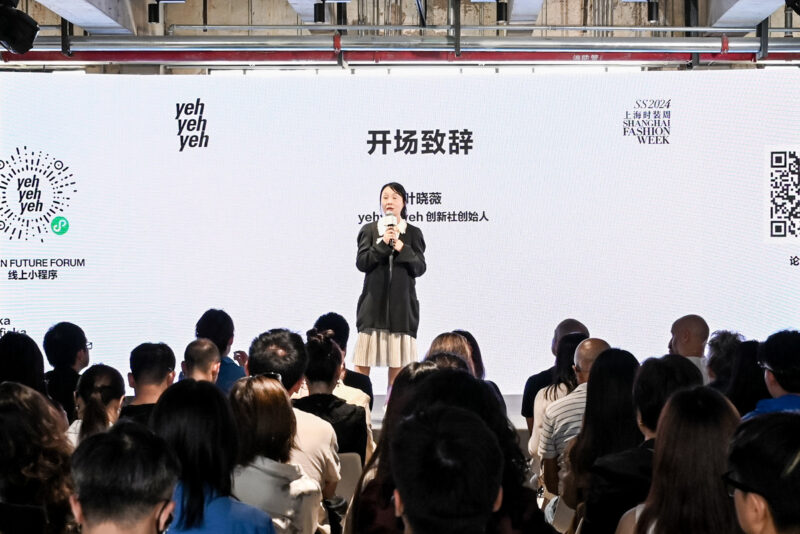
FNGN: With most peoples’ perception of China being a major global manufacturing hub, responsible for so many disposable items that end up in landfill – what solutions/ advocacy did online consumer sales giants of Tabao and Tmall contribute to the circular economy discussions?
Shaway: There is a very popular online platform called Xian Yu under the Alibaba group – the mother company of Tmall and Taobao – which is for 2nd hand trading/exchange. Most young people I know, regardless of income level, are active on this platform. This implies that the concept of “circularity” is already embedded within young consumers. Buying 2nd hand is not simply because of cost-saving, but it is a new mentality of letting idle stuff circulate in the market, creating value and also fun among the exchange. Tmall has been trying to come up with strategies using their tremendous power of data intelligence to link “green-minded” consumers (16 % currently) to “green products”, also encouraging brands and companies to launch core “green-products”. We will work on a campaign together this year.
FNGN: So what’s on your agenda over the coming weeks?
Shaway: Well, I just returned from a couple of months in Europe- so now it’s the China festive holiday time to spring clean, have booked many dinners with family, colleagues, and friends, gift-giving of course, and collecting my thoughts. We have a very full schedule this year. I am naturally curious and highly focused on details, but also committed to staying healthy. Plus, I believe that if you love what you do and can see constructive positive results, then you naturally summon the energy to keep going; to see what’s next around the corner – to push personal and business boundaries. It’s a journey of discovery.
On top of our successful Shan Future Forum in Fashion and Design which happens in the latter part of this year; I will launch in April 2024, during the first Shanghai Climate Week, a new initiative: Climate Creative, to encourage and showcase young people who are addressing issues of climate crisis through the power of creativity.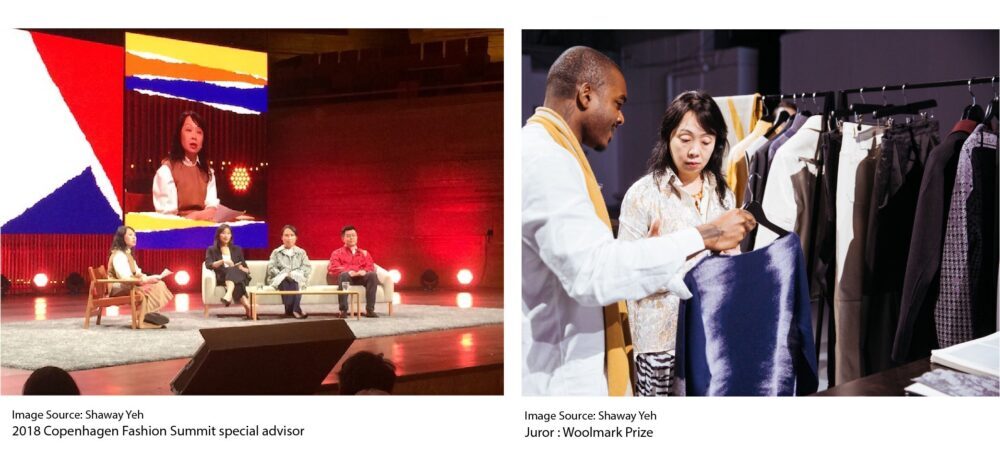
FNGN: It sounds like you have similar attributes to elite sportspeople. Focused on goal setting, resilience, accountability, decision-making, etc- and of course confidence. Is that you?
Shaway: Well, I’m not that sporty- maybe yoga, bicycle riding. I love walking around new cities and exploring. But I do believe in doing your best and challenging yourself. Not in an ego way. But also, I have been involved in the fashion and lifestyle media industry for many years. I am familiar with the big picture and can dissect it into manageable parts. I know my stuff. Haha.
FNGN: Can you briefly share with our readers your trajectory into Fashion?
Shaway: My early studies and career were in New York, where I co-founded Arude Lifestyle magazine. I then returned to Taiwan as GQ Fashion Director, and in 2003 moved to Shanghai for the launch of Vogue China. I then went on to become Chief Editor for Modern Weekly, the first magazine-like weekly in China, containing four sections: News, Business, Lifestyle, and Metro. It became the go-to, most innovative, and influential style publication in China with international outreach. Quite an achievement.
Overall, it was a very exciting monumental time, never to be repeated, with so many international fashion brands, models, and affiliated industries, parties, and boutique openings- all converging in China and the greater Asia region. All vying for market share.
China, in most sectors, moves very fast – and China fashion brands’ design nuances and mindfulness of carbon footprints, etc have come such a long way since I first came to Shanghai. China is on the pulse and a great place to be.
FNGN: Shaway, we have just got started – there’s so so much more to discuss. I look forward to you coming to Australia. Perhaps for Melbourne Fashion Week 2025?
Shaway: Well, that would be fun. I’ve been to Sydney but not Melbourne yet. In March this year, I will judge the legendary ITS competition in Triest, Italy then attend ChangeNow in Paris. Then I’m off to Indonesia for research and meetings. They’ve just had their government elections too. And then, back to Europe.
FNGN: Thank you Shaway. So inspirational. So much to reflect on. Remind me, which brand of rollerblades are you on? Haha.
Read more about Shaway and her exceptional work: Shaway Yeh: YehYehYeh website +: Business of Fashion 500 List BoF list here+
Generation Awards Kering Group, more+




